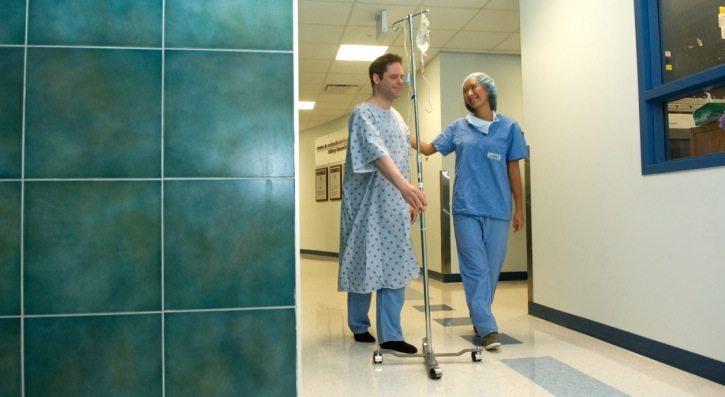An overnight (or longer) stay in the hospital can be scary and stressful. The new surroundings, medical terminology and encountering new faces and medical devices are confusing enough, let alone keeping track of which doctor is working with the health care team taking care of you.
Over the past several years, there has been a shift in which doctor provides the medical care for patients when they are in the hospital. Primary care doctors, be they family physicians, internists or pediatricians, spend the majority of their time in their offices seeing patients and spend little or no time caring for their patients when they are hospitalized.
In years past, the family doctor would conduct “rounds” on their patients in the hospital, either first thing in the morning, at the end of the day, or both. Now, specialized physicians called “hospitalists” are filling much of the inpatient care role. And, that’s a good thing.
A hospitalist’s professional focus is caring for patients in the hospital. This focus allows them to increase their expertise in hospital care and to be more readily available than physicians who work both in the office and the hospital. Depending on the length of your hospital stay, more than one hospitalist may care for you, but they all are part of your care team of doctors, nurses, aides, and others who should be communicating with you and each other about your medical condition.
After you leave the hospital, the hospitalist team is responsible for communicating with your personal doctor, so that he or she is fully informed and can resume your care. And, always remember, the MOST important person on your care team is YOU, or a person you have designated in the event you can’t speak for yourself. If you don’t know or aren’t sure who someone is, or if you sense something isn’t right … SPEAK UP.
Here’s a check-list of what you should expect from your hospitalist physician, adapted from the Society of Hospital Medicine:
- Prompt and complete attention to all of your care needs including diagnosis, treatment, and the performance of medical procedures (within their scope of practice).
- Collaboration, communication and coordination with all physicians and health care personnel caring for you.
- Safe transition of your care within the hospital and from the hospital to the community, which may include oversight of care in post-acute care facilities.
- Provides safe, quality and efficient care for you in the hospital.
You may notice that the majority of these items include communication, communication, communication — with you, other physicians, your primary care physicians and the members of your health care team in the hospital.




